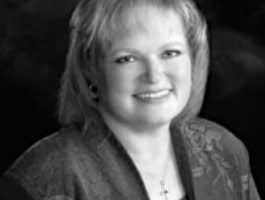
The Sovereignty of God
God is good all the time, but it's hard to believe that when someone we love is dying. On today's broadcast, Dennis Rainey talks with Deborah Howard, a hospice nurse and author of the book Sunsets, about the sovereignty of God.
Show Notes
About the Host
About the Guest
-
God is good all the time, but it's hard to believe that when someone we love is dying. On today's broadcast, Dennis Rainey talks with Deborah Howard, a hospice nurse and author of the book Sunsets, about the sovereignty of God.
-
Dave and Ann Wilson
Dave and Ann Wilson are hosts of FamilyLife Today®, FamilyLife’s nationally-syndicated radio program. Dave and Ann have been married for more than 38 years and have spent the last 33 teaching and mentoring couples and parents across the country. They have been featured speakers at FamilyLife’s Weekend to Remember® marriage getaway since 1993 and have also hosted their own marriage conferences across the country. Cofounders of Kensington Church—a national, multicampus church that hosts more than 14,000 visitors every weekend—the Wilsons are the creative force behind DVD teaching series Rock Your Marriage and The Survival Guide To Parenting, as well as authors of the recently released book Vertical Marriage (Zondervan, 2019). Dave is a graduate of the International School of Theology, where he received a Master of Divinity degree. A Ball State University Hall of Fame quarterback, Dave served the Detroit Lions as chaplain for 33 years. Ann attended the University of Kentucky. She has been active alongside Dave in ministry as a speaker, writer, small-group leader, and mentor to countless wives of professional athletes. The Wilsons live in the Detroit area. They have three grown sons, CJ, Austin, and Cody, three daughters-in-law, and a growing number of grandchildren.
-

Deborah Howard
Deborah Howard, RN, CHPN (Certified Hospice and Palliative Nurse), and her husband, Theron, live near Little Rock, Arkansas, where she divides her time between writing and working as a hospice nurse.
God is good all the time, but it’s hard to believe that when someone we love is dying.
Bob: Perhaps you've been with a friend or a family member when that person has passed from this life to the next life. Here's hospice nurse Deborah Howard.
Deborah: There is a moment that happens that you can just tell there's nothing here anymore – nothing that makes them who they are is there anymore, and sometimes that happens, actually, before their vital signs stop. You can just tell there's a moment that happens when, all of a sudden, you realize that it's just the shell, and that is a very poignant moment.
Bob: This is FamilyLife Today for Wednesday, February 23rd. Our host is the president of FamilyLife, Dennis Rainey, and I'm Bob Lepine. The passing from this life to the next can be a profoundly spiritual time for those who see it through spiritual eyes.
And welcome to FamilyLife Today, thanks for joining us on the Wednesday edition. And welcome to FamilyLife Today. Thanks for joining us on the Wednesday edition. We've been talking this week about the journey that, frankly, all of us are on. It's a journey that will take us up to the door of death. Some people get there suddenly, some people get a little advance warning – a doctor who delivers the news that death is around the corner for you; it's coming soon.
I know when my dad was in his 60s, he went to see the doctor about a mole that was bleeding on his shoulder, and the doctor did a biopsy of the mole and found that it was malignant melanoma, and they went in and did surgery and scooped out a big portion of his shoulder and told him that if he was clean for five years, they could sign off that he had beaten melanoma. But two-and-a-half years later the melanoma was back. Dad went to M.D. Anderson Clinic in Houston and was involved in some experimental protocols, but it ultimately took his life.
And during that time, I had the opportunity one evening to sit down with him and to ask the question that is on all of our hearts as we see a family member, a loved one, headed in that direction and say, "Dad, do you have confidence in where you're headed? Do you know what's on the other side? If you were to die today and arrive before the throne, and God was to say, 'Why should I let you into my heaven?' What would your answer be?" People are open to those kinds of spiritual discussions as they face death, maybe in a way, Dennis, that they're not open to them before that time.
Dennis: It is a tremendously teachable time, and for people who are prepared to talk with their loved ones, or for the person who is dying to talk to the living about eternity, and we just need to be prepared, and we need a good understanding of death and the process of dying from a biblical perspective. There is a passage in Lamentations, chapter 3, verse 37 – some people who read the Bible would like this verse to go away, but this is in the Bible. It says, "Who can speak and have it happen if the Lord has not decreed it? Is it not from the mouth of the Most High that both calamities and good things come?" Lamentations, chapter 3, verse 37. Well, it is true that God does allow both calamities and good things to happen. He purposes them to happen, and He wants to use them for our good.
All this week we've been talking to Deborah Howard about the whole process of death and dying. Deborah, thanks for joining us.
Deborah: Thank you, Dennis, it's an honor to be here.
Dennis: Deborah has written a book called "Sunsets – Reflections for Life's Final Journey," and this comes from her vast experience as a nurse, a trained nurse, in the area of hospice care, which she has done now for nearly a decade, and she has witnessed, literally, hundreds of people dying. I think, Bob, of my own grandmother who lived to be 101. They fed her with an eyedropper for the last three or four years of her life, cared for her as family members around the clock, just nearly wore themselves out. I think our family could have used hospice care in that time – perhaps to have coached us in the process of caring for her.
Bob: Yes, and as we've learned this week, hospice is there not only for the physical issues that a patient may be facing as they walk down the path toward death, but also for the emotional and spiritual issues being faced both by the patient and by the patient's family. Have you found this to be a spiritually teachable time for people, Deborah?
Deborah: In most cases, yes. People seem to be more receptive to talking about spiritual issues when they know their hereafter is coming very close. And so in some cases they are willing to talk about spiritual things for, sometimes, the first time in their life.
Bob: I would imagine, especially if they're facing a life-threatening illness, one of the questions that people will ask you is why does God allow this? Why is this happening to us? How do you respond to that?
Deborah: Well, first of all, I acknowledge that that's a very good question, and a question that they would just naturally have in their minds. Basically, I remind them about the Scriptures and what the Scriptures say about death and the origin of death, which was the fall of mankind in the Garden of Eden.
As part of the curse that God levied upon mankind, He said that the wages of sin would be death. That's why death happens to every person – no person is exempt from that, and in Hebrews it talks about that "it is appointed for men once to die and then the judgment." So death is not particularly a punishment from God, but it's just a natural part of life and death. In years past, death was seen very differently than it is now. Now the general society has the idea that if they're good, if they live good lives, they should somehow be exempt from this, but that's not the way it has been in years past.
Many years ago death was considered just a part of life and accepted as such. A deathbed scene in the past was very different than one that is seen now.
Dennis: How so?
Deborah: Well, sad to say, most people do still die in hospitals and in a very clinical setting. I used to be an ICU nurse, and one of the things that we were told is when a patient starts to, as we call it, "crash." The first thing we did was get the family out of the room and back in the waiting room so that we could work with the patient. If that meant calling a code; that is, a code blue, and resuscitating the patient then that's what we did. But, even then, that struck me as odd because I think that when a patient is dying, that's the time for their family to be gathered around them and not some strangers – doctors and nurses and techs and separated from their families.
In the past, death was very much in the home. People died in the home, they lay in state in the home, and people filed in and out of the rooms. It was like Grand Central Station. People had wakes, where they were anything but solemn. They would have fun, they would talk about the one that had gone on, and it was a time of rejoicing for their life – a celebration of their life, because death was just part of the expected norm. It was the end of life.
In one sense, it's the most intimate time of a person's life – the way they die. You think about when a person is born and all the joy that's associated with the birth and people standing around and laughing and clapping themselves on the back, and it's just a time of great rejoicing. For those of us who have been present at the time of birth – I was there at the birth of both my children, and therefore I know, firsthand, of the joy involved in ushering a young person, a baby, into this world. But I think the more intimate time is the time of their death.
Dennis: If you were to provide some counsel for a family member who is wanting to be connected to their loved one as they approach death, and they have a few weeks, a few months, to live, and you're going to have some kind of a relationship during that time, you certainly have to know that God's in charge. That's what we're talking about here – that God is sovereign. He rules in the affairs of men and nations. But what other counsel would you provide for me, as a family member, as I relate to the one who is passing off this planet?
Deborah: If the family member is a Christian, the kinds of things that I would tell them would be to direct them towards participating in this event with them; sitting next to them; talking to them. There are some people that think the patient needs to be isolated in a way so that you can provide peace and quiet in a dark atmosphere. But most of the time when we are talking to people, we suggest that they engage their loved one as much as possible. Friends, family seem to drop away a little bit because so few people are comfortable dealing with death and with end-of-life issues.
Dennis: There were a couple of things that I did with my mom as she moved toward death. One is I attempted to sit by her bed, like you're talking about, and I just took her hand in mine.
Deborah: That's one of the sweetest things you can do.
Dennis: And I just rubbed her hand. And I'd get a washcloth, and I would lightly dampen the washcloth, and I would rub it across her forehead and her cheeks and her lips, because when I was ill, as a boy, that's what she did for me.
Deborah: It felt good to you, didn't it?
Dennis: It did, and I thought maybe that will feel good to her. And I fed her and, you know, Mom ate like a horse right up until the end, and I had a chance to feed her a meal, and I go, "She's nowhere near death right now, because she's eating everything on her plate," and she said, "This is good." I also pulled out the Scripture and read her the Scripture, and she didn't comment on it, but I attempted to read her some of the passages of Scripture that described heaven and talked about where she was headed and where she was going.
Deborah: It kind of enhanced her perception of that and reminded her of the hope of heaven. That's an excellent thing to do.
Dennis: Are those the kinds of things you're talking about doing, though?
Deborah: Right. There was one case that I remember where the wife had a brain tumor. She had had radiation, she was completely bald, and she was bloated from the disease process, and not a beautiful person from a worldly standpoint. But her husband of 61 years was sitting at her bedside telling her how beautiful she was. He was stroking her, and he was saying, "You're my beautiful baby, you're my beautiful love," and he would tell me later on, "I don't know what to say to her," and I told him, with tears in my eyes, "You're doing just fine." Just to reassure her of the love and respect that people have for her, apart from reading the Word of God to them, which can be extremely comforting, many patients go through what we call a "life review" before they really take the turn for the worse, where they start remembering things in their life. They talk about when they were a kid. They talk about their parents, their families, they remember things that they did early in their marriage or with their children.
As they get sicker, they're not able to do this anymore, they can't form a cohesive sentence sometimes, but we think that the hearing is the last sense that goes away. So sometimes, even if they're lying in bed with their eyes closed, we still think that they're hearing what is said. And so one of the things that we can do is engage in life review for our loved one. "Mom, do you remember back when we did thus and so?" Just to remind him or her of all the fun they've had and talk about the funny times, the times that she was embarrassed or talk about times that always brought a laugh to her face when she was well and doing fine. So we suggested they engage in this.
The other day you said that one gift you gave your mother was permission to go, permission to die, if she needed to. And that's another thing that is a very valuable thing not only for the patient, because it does sort of free them up to relax into what's happening, but it's very important for a family member to get to the place where they can do that; where they can let go and tell them it's okay if you need to go.
Bob: Deborah, if you had a friend or a family member who was walking along the path toward death, and you did not have any reason to have confidence that this person was a Christian, what kind of opportunities would you look for? How would you bring up that subject? I mean, here is somebody who may be experiencing some suffering and some pain. We don't want to add to the discomfort, we want to show some compassion and kindness but, at the same time, we want to deal with what is really the most important issue they are facing at that moment.
Deborah: I would direct it towards your love for him or her. I can see very clearly sitting at the bedside, picking up her hand, and saying, "Because I love you, I need to have a talk with you about some things that are important to me and things that are vitally important to you. I don't want to make you uncomfortable but, at the same time, I have to have this talk with you while we still can." And just to make it centered around your love for her, and that this is an outpouring of love. It is not any kind of pressuring or anything like that, and then that way it would set a trusting kind of base from which you can launch into whatever spiritual truths you need to share with them. Just very quietly just be honest and say, "There are some things that I am really concerned about, and we need to have a talk about those."
Dennis: When I think about death, and I think about the life having gone out of a body, and anyone who has been to a funeral where there has been an open casket, and they've looked at a loved one or a friend, Bob, as you and I did here not too many months ago. Our friend, J.T. Walker, as we stood beside his coffin and looked at his body, we said, "You know, the light's gone. The light is out of his life."
Deborah: There is a moment that happens that you can just tell there's nothing here anymore – nothing that makes them who they are is there anymore. You can just tell there's a moment that happens when, all of a sudden, you realize that it's just the shell, and sometimes that happens, actually, before their vital signs stop. You can just see, like you said, the light go out of their eyes, and that is a very poignant moment.
I don't embrace death as emotionally as I used to and, most of the time, I try to stay very composed when I'm with patients and their families. The last thing they need is for the hospice nurse to go bonkers. So I try to stay very much in control. But later, when I get in my car, and I start home, you can't help but remember and to think I never want to get to the point where death is nothing to me – part of business. I never want to get to the point where it doesn't touch me, because somebody, whether I knew these people or not, they were somebody's husband, they were somebody's father, they were somebody's brother that has memories. These are people that lived and breathed, and I know that when it's somebody that I loved, one of my family members who is ill, I know how emotional I can become for that, and I want to – sometimes I just pretend when I'm with a patient – what would I do if this was my brother? What would I do if this was my mother? What kind of love would I give them? And that helps me come up with all kinds of ways that I can demonstrate love and try to work toward their comfort.
There may be a time when there is nothing medically that people can do for this disease process, but there is never a time when you can't contribute in some way to a patient's comfort. And so that's what I try to do – is just to – I want to remain soft enough in my heart that I'm touched by death. A lot of people and, unfortunately, Christians are among these, who try to put unrealistic expectations on other Christians. It's almost as though the stronger you are in Christ, the less affected you should be by the death of a loved one, and we're told to praise God in all things; to be thankful for all things, and that is true, and we should. But that does not mean that we are not going to experience grief or sorrow or sadness.
My mother's dog had to be put to sleep, and I cried for two days over that one, and I find more acceptance among Christians sometimes for something like that than I would if I were grieving the loss of a loved one.
Dennis: I spoke at J.T. Walker's funeral, and here was a 43-year-old man who left behind five children ages 4 to 20, and when I was speaking, I looked down there on the front row at two boys who were never going to have a dad again to love them like their dad had loved them – and three daughters who needed a daddy in their life – and daughters who, at some point, were going to get married and weren't going to have a dad – their dad – to walk them down the aisle and to hand them off to a young man. Death does bring grief. It brings the need for comfort, but it can also bring great teachable moments spiritually.
I think, for Christians, we need to gently yet boldly approach our loved ones, whether it be the one who is dying or the ones we are leaving behind – we need to talk with them about eternal matters so that when we sing the song, as we did at J.T. Walker's funeral – "It is well with my soul," we can sing it and mean it and know that our loved ones are going to join us in eternity with Jesus Christ.
Bob: You know, I think we need to remind ourselves of what the Bible says about death not what the culture says about death, but what the Scriptures say about death. In some ways it's a glorious passage. It's something that we can be sad as we bid farewell to a friend, but we should not be sad for our friend, because our friend …
Deborah: … if they're Christians …
Dennis: Paul said it – "To live as Christ to die as gain."
Bob: And I'll never forget a preacher who said, "If you could go to somebody three minutes after death and say, 'Do you want to go back and say goodbye to anybody?' You'd say, 'I like it here, forget it, I'll see them later.'" I think that's what Deborah's book does for us – it reminds us of what is biblical about death.
We've got copies of it in our FamilyLife Resource Center. It is called "Sunsets – Reflections for Life's Final Journey." You can go to our website, FamilyLife.com and find out more information about the book or request a copy online, if you'd like. Again, our website is FamilyLife.com. When you get there, down at the bottom of the screen there will be a little button that says, "Go." Click that button, it will take you right to the page where you can find out more about the book, and you can order online, if you'd like.
There's also information about another book that our team has put together called "Encouragement for Broken-Hearted Homes," that offers comfort and hope in the midst of grief and sorrow for families. If you'd like to get a copy of both books, we can send you at no additional cost either the CD audio or the cassettes of our conversation this week with Deborah Howard. Again, the Web address is FamilyLife.com. If you don't have Web access, you can call 1-800-FLTODAY and we've got folks on the team standing by who are ready to take your call and let you know how you can have these resources sent to you.
We're talking this week about the challenging time families face when a loved one is dying but, obviously, those aren't the only challenging times that families face. I heard from a number of our Legacy Partners recently. A listening in Petaluma, California, who said, "Please pray for my marriage, where to go for help, for God to heal and reveal and bring repentance on both of our parts." A listener who wrote to us and said, "Please pray for our 16-year-old son flunking out of school, very disobedient, we don't know what else to do with him." Another listener in Indiana wrote and said, "My husband and I need a lot of prayer for our marriage." There are situations facing families every day that are difficult situations, situations that can leave us discouraged, not knowing where to go for help.
FamilyLife exists to try to provide practical biblical help for the issues that all of us face in our families. Through our website, FamilyLife.com, through the tapes, the books, the resources we make available, and through this daily radio program, we're hoping to provide you with the kind of help that can encourage you and equip you to move through these issues in a way that honors Christ and that brings peace and hope back to your family.
We want to thank those of you who are Legacy Partners. You help make this ministry possible, and it's a privilege for us, as we get these comments back from you, it's a privilege for our team to pray for you. We do that. We consider you partners in ministry, and when you are experiencing a challenge like this, we want to be able to pray for you and with you, and we also want to say thanks for the financial support that you provide to keep FamilyLife Today on the air in your city and in cities all across the country.
If you'd like to find out more about becoming a Legacy Partner and joining with us here at FamilyLife in the work of this ministry, you can go online at FamilyLife.com. There's information about becoming a Legacy Partner there, or call 1-800-FLTODAY and someone on our team can help you join the team. Again, the number is 1-800-FLTODAY or get more information online at FamilyLife.com.
You talked about singing the song, "It Is Well With My Soul," at J.T.'s funeral recently, and there is such great hope in that final verse – "Lord, haste the day when our faith becomes sight, and the clouds are rolled back as a scroll, the trumpets shall sound, and the Lord shall descend. It is well with my soul."
FamilyLife Today is a production of FamilyLife of Little Rock, Arkansas, a ministry of Campus Crusade for Christ.
_______________________________________________________________
We are so happy to provide these transcripts to you. However, there is a cost to transcribe, create, and produce them for our website. If you’ve benefited from the broadcast transcripts, would you consider donating today to help defray the costs?
Copyright © FamilyLife. All rights reserved.





